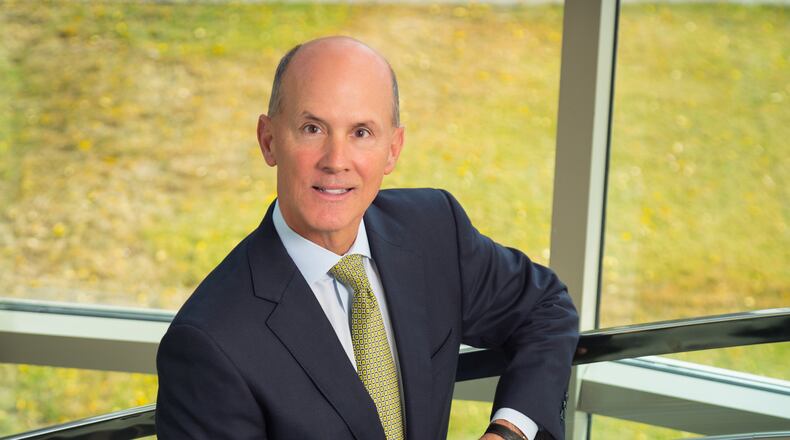Equifax’s chief executive said Wednesday he expects President Donald Trump’s ideas about cutting corporate taxes and financial regulations to boost the economy and the fortunes of the Atlanta-based company and its customers.
“If the Trump administration moves along the path of moderating regulation, that’s good for our customers and us,” said Equifax CEO Richard Smith.
Smith shared his thoughts about Trump’s policies in an interview after Equifax released its financial results Wednesday.
The company reported a 20 percent jump in revenues during the fourth quarter compared to a year ago, to $801 million, thanks to growth across most of its product lines, and new business from its $1.8 billion deal in 2015 to buy Veda, one of the largest credit-reporting companies in Australia and New Zealand.
Net income increased 10 percent over a year ago, to $123 million. Equifax said its “adjusted” income — which leaves out certain costs related to the Veda deal — rose 25 percent, to $172 million.
Smith said Equifax’ financial results are a reflection of years-long efforts to transform the company from a traditional credit-reporting firm to a “fintech” company with wide-ranging products aimed at businesses and consumers in the U.S. and overseas.
“It’s not like we were dependent on one business unit alone,” he said.
Smith said he would welcome lawmakers’ recent proposals to cut the federal corporate tax rate from 35 percent to 15 or 20 percent.
Smith also said efforts to trim Dodd-Frank, the big financial regulatory overhaul law that was enacted after the 2008 financial meltdown, would help Equifax and the company’s lending customers.
Last week, Trump signed a broadly-worded framework for dismantling Dodd-Frank according to certain "core principles," such as "empower(ing) Americans to make independent financial decisions."
One such regulation affecting Equifax’ business clients, said Smith, is the “ability to pay” rule requiring certain lenders to be able to show that borrowers can afford to pay back the loans they take out.
Smith also praised proposals to overhaul the Consumer Financial Protection Bureau, another creature of Dodd-Frank, by creating a multi-person commission to head the agency. Such a change “would be good for us,” said Smith.
Under its director, Richard Cordray, the CFPB has aggressively gone after banks, lenders, debt collectors and credit agencies for alleged abuses, including Equifax.
Last month, in a settlement with the CFPB, Equifax agreed to pay $6.3 million in civil fines and restitution after the agency accused the company of misleading customers on credit score services it was selling. Equifax didn't admit of deny the allegations.
About the Author
Keep Reading
The Latest
Featured


